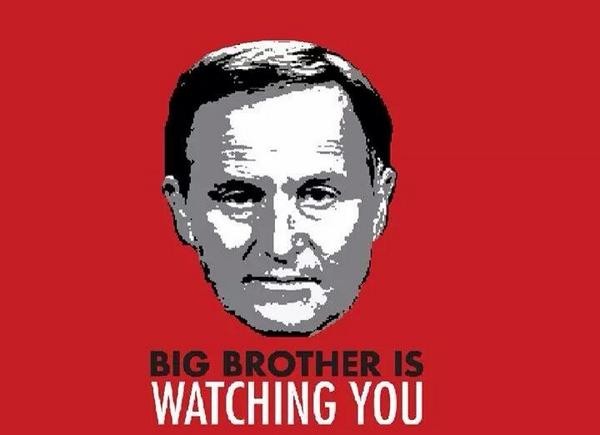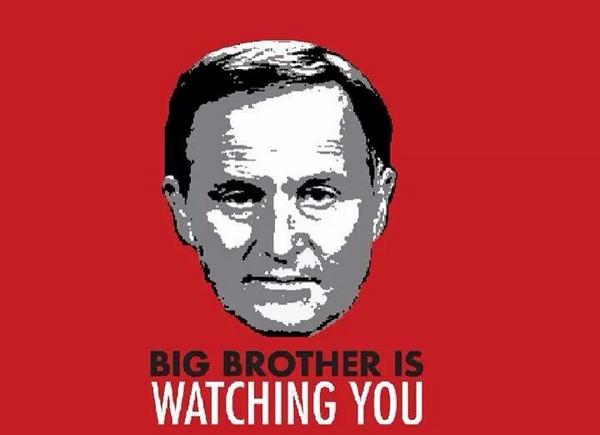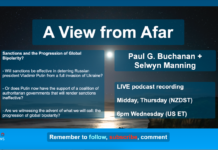
In my submission to the Intelligence and Security Agencies Review I questioned the need for spy agencies, arguing that any positive functions they have could be better covered by other existing state agencies.
Criminality (politically motivated or not) is already addressed by the New Zealand Police, and it has powers, under warrant, to intercept communications. The Police are not short on intelligence from overseas agencies on trans-national crime, including terrorism.
In their report released last week, reviewers Sir Michael Cullen and Dame Patsy Reddy admit that the Police and Customs collect confidential intelligence in relation to criminal behavior, but argue that the spy agencies have a broader mandate than the Police, having “a responsibility to identify potential threats before they become events of security concern.” But surely the Police intelligence units, with their connections overseas, already gather information on “potential threats” when these have a criminal dimension. The spy agencies do not have a good record on detecting criminality. Not once in their entire history have we heard of the SIS and GCSB providing the key evidence in a criminal trial leading to a conviction.
Cullen and Reddy’s elaboration of threats to “national security” goes well beyond unlawful behavior to include such vagaries as threats to “international security”, threats to “New Zealand’s economic security or international relations”, and the threat of “foreign interference”.
It is this intrusion into non-criminal sphere that makes the spy agencies so dangerous. Take for example the GCSB spying on Brazilian government communications, disclosed in the Snowden papers, in an unsuccessful attempt to give our Trade Minister Tim Groser the edge over Roberto Azevedo in the race to be director-general of the WTO.
Our neo-liberal government would be quite comfortable that the GCSB’s help for Tim Groser’s campaign was in the interests of “international security” or “New Zealand’s economic security or international relations.” New Zealand critics of neo-liberalism (of which there are many) would argue the opposite.
“Foreign interference” is also a nebulous concept in the era of globalization. Take the debate over the Trans-Pacific Partnership Agreement. The New Zealand government was subject to “foreign interference” by both the corporate globalisers (who supported the TPPA) and an Asia/Pacific NGO coalition (who opposed the Agreement). The Snowden papers give a hint of which side the Five Eyes network (of which the GCSB is a part) would be spying on. The Five Eyes agencies wouldn’t be spying on those Asia/Pacific governments and corporates backing the TPPA.
But what do we do when foreign government’s spy on the New Zealand government? Firstly, the problem seems to be largely the other way around, with the Snowden papers showing that the GCSB has spied (for the Fives Eyes) on a host of governments in the Asia/Pacific, much to the chagrin of those governments. Of those government, only China would have the both the capacity and inclination to spy on New Zealand. Secondly, how many state secrets does New Zealand have that would be of much use to a foreign government? We are a pretty open society.
If there is any current threat it is the foreign governments, firms or individuals hacking into our company computers and stealing their intellectual property. Cullen and Reddy note that several submissions (including my own) pointed to a conflict of interest between the GCSB’s cybersecurity function (protecting computers) and its intelligence function (weakening computer security to allow the spy agency access). This conflict is illustrated by the current efforts by the US government to weaken Apple smartphone security to allow the FBI entry.
The best way out of this confict of interest is for the government’s cybersecurity unit to be independent of the GCSB and any relevant GCSB personnel and equipment to be transferred to the new unit.
However, the government will resist such a development because its main “selling point” for the GCSB is the agency’s cybersecurity function. Its other selling point is the GCSB’s counter-terrorist function. However, there is no evidence the GCSB adds much value here. The Police can adequately handle the low level of threat from terrorism, assisted by intelligence reports from other nations.
Cullen and Reddy do go part way toward recognising the need for an independent cybersecurity unit, praising a proposal to set up a national Computer Emergency Response Team (CERT) outside the GCSB.
The Cullen/Reddy report argues that spy agencies are essential information gatherers to enlighten our government on “the broader security context and New Zealand’s international and economic interests.” I was surprised at that because I thought that this was the role of the Ministry of Foreign Affairs and Trade. It’s funny how MFAT is left out of the picture. This Ministry has a lot of weaknesses, but do the spy agencies really add much to government’s understanding of the international situation? I haven’t seen any evidence of it. A few more Ministry experts checking out the international demand for milk – to give farmers a more accurate prediction of the milk price – would contribute more to our economic security than a few extra spooks.
Do we really need an SIS and a GCSB, restructured or not? What is wrong with leaving the collection of intelligence on crime to the Police, and intelligence gathering on world trends to the Ministry of Foreign Affairs and Trade.
[There is a lot more in the Cullen/Reddy eport that I haven’t dealt with, including agency restructuring proposals that will enable more electronic surveillance of New Zealanders. I may pick up some of these issues in subsequent blogs.]






SIS has been pretty notoriously abysmal since its inception. They can talk about secret successes all they want, but their primary adversary (USSR) basically owned them. Australia and NZ wound up with disastrous mole and espionage issues. In the meantime, the USSR is imploding and no one seems to notice that it’s so far gone you have Guards Tank Armies and Spetznaz Alfa teams refusing orders in the hardline coup attempt.
Granted it’s a stacked deck because the KGB is an autonomous authoritarian state inside an authoritarian state, but still. This was theadversary and your entire reason to exist. The irony is that they’ve done ok hunting al-Qaeda despite the cultural alien problems that didn’t exist with the USSR. They still seem to get bushwhacked routinely on what’s going on in New Zealand – Dotcom being a recent example. It clearly took Key completely by surprise, the U.S being one of the world’s most powerful countries, and just holds out the GCSB at arms length like a play thing.
GCSB, honestly seems like it is trying to do way too much. Taking in a million times more information than you can possibly process is not useful. Again, their job is ridiculously hard with the constant doubling of information traffic and the proliferation of encryption. However, it’s not really clear that what they are currently doing is really of much use to anyone.
New Zealand doesn’t have an interventionist military or Foriegn policy, so what the hell are we investing in offensive spy ops for.
+100 Keith!
Good insights, Keith. Thanks for sharing and enlightening us.
From what I can research, GCSB NZ works for interests controlling Pine Gap (if my research is wrong, happy to be corrected):
http://www.bibliotecapleyades.net/esp_sociopol_pinegap.htm
Confirmations coming in from all over that the Republic of the United States of America has now been restored so it will be interesting to see the affects of this on the GCSB and the TPPA.
I think you are mistaken. Your link has more to do with NASA than GCSB
Who actually are the GCSB targeting?
Well not the 1% that’s for sure so they must be targeting everyone else:
http://www.bibliotecapleyades.net/imagenes_sociopol/echelon1.jpg
If you scroll down read thru the NSA info(ignoring any UFO/alien mention) this outfit can plug into every telephone call, message, etc:
http://www.bibliotecapleyades.net/ciencia/echelon/echelon03.htm
So, it would appear, extra surveillance, extra info going to NSA.
I note Canada has called a temporary halt out of concern for the privacy of its citizens.
The 99% who might rise up and try to take a piece of the 1%’s wealth.
There targeting ghettos
Some new U.S army doctrine came out in 2013 (I think, link:http://www.army.mil/e2/c/downloads/351235.pdf) how to take on an adversary held up in a mega city. Every branch of the military in different countries have there own ideas of what hybrid warfare is (https://en.wikipedia.org/wiki/Hybrid_warfare) basically militaries are trying to include cyber space as a new battle field. Including things like currency wars and interest rate manipulation in the devious was of destroying an economy.
ISIS has shown particular skill in encrypting there communications using apples App Store.
When you consider that the global financial crises is more destructive than an atomic bomb, destroying more factories and killing more people. It pays to keep an eye on these things when the governments entire existence is to protect jihadi bankers
Comments are closed.